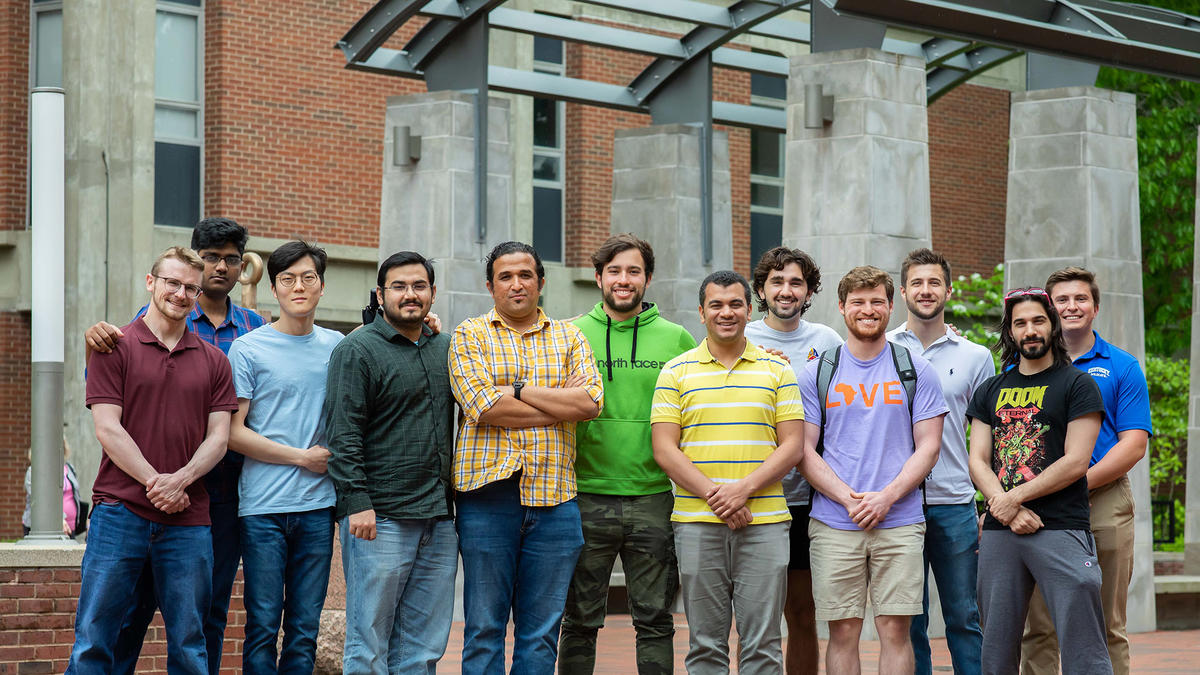“This work is possible thanks to my students, their patience, and their own ambitions,” said Poovathingal, assistant professor in the Department of Aerospace and Mechanical Engineering. “I am fortunate to have students from a wide have students from a wide range of backgrounds and perspectives, which is very important for the field of aerospace engineering.”
Poovathingal’s team is working to create predictive modeling about how ice particles respond when a hypersonic vehicle passes through them.
When a vehicle travels at hypersonic speeds – more than five times the speed of sound – it causes the hull of the vehicle to become shrouded with hot gasses. Hypersonic vehicles fly at altitudes two to three times higher than commercial flights. At these altitudes, it’s so cold that moisture in the atmosphere freezes.
“You can imagine an ice particle, sitting in a cold environment, that is suddenly exposed to extremely hot gases,” said Poovathingal. “The temperature and pressure change is like a hammer hitting the ice particles.”
Poovathingal’s modeling will provide insight into how ice particles are damaged, how they melt and how they affect the shroud of hot gasses surrounding the hypersonic vehicle. This information will help engineers and designers understand how the ice particles might damage a high-speed aircraft.
“Dr. Poovathingal has built a strong research team focused on multi-scale modeling to study the interaction of high-temperature hypersonic flows with materials,” said Michael Renfro, chair of the Department of Mechanical and Aerospace Engineering. “His research is advancing understanding of the degradation of thermal protection materials used for spacecraft, and this new program will similarly advance capabilities in hypersonics for national defense. The work contributes significantly to the new Aerospace Engineering degree programs at UK and involves collaborations with other faculty in this strategically important area.”
This material is based upon work supported by the Office of the Under Secretary of Defense for Research and Engineering under award number FA9550-22-1-0342, Any opinions, findings, and conclusions or recommendations expressed in this material are those of the author(s) and do not necessarily reflect views of the U.S. Department of Defense.
